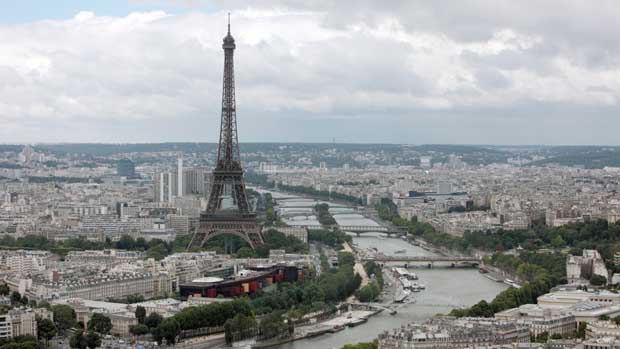Will UK tourists need a visa to visit the EU after Brexit?
It's business as normal until Article 50 is triggered – but then it could become difficult to travel around Europe

A free daily email with the biggest news stories of the day – and the best features from TheWeek.com
You are now subscribed
Your newsletter sign-up was successful
The outcome of the EU referendum has plunged the country into a period of uncertainly and left everyone wondering exactly what the future holds for Britain's relationship with Europe.
One of the myriad of troubling questions posed by the prospect of leaving the European Union is how travel will work in a post-Brexit Europe. Will UK tourists need a new passport – and more importantly, if freedom of movement isn't part of a future deal with the EU, will they need a visa to visit popular destinations such as France, Spain and Italy?
In the meantime, there will be no changes to the way we travel around the continent. Until the two-year negotiation period is over – and it won't begin until Article 50 of the Lisbon Treaty is triggered – free movement will continue as normal. The European Health Insurance cards also remain valid.
The Week
Escape your echo chamber. Get the facts behind the news, plus analysis from multiple perspectives.

Sign up for The Week's Free Newsletters
From our morning news briefing to a weekly Good News Newsletter, get the best of The Week delivered directly to your inbox.
From our morning news briefing to a weekly Good News Newsletter, get the best of The Week delivered directly to your inbox.
Even after leaving terms are finalised, there is no guarantee that freedom of movement between the UK and EU member states will come to an end.
Although controlling migration was cited as one of the top motives for those who voted to leave, it is highly likely that a Brexit deal will have to include at least some freedom of movement.
Italian Prime Minister Matteo Renzi said that the UK cannot expect to only have the "good things", telling CNN that access to the single market without accepting migration was "impossible".
His comments echoed those of German Chancellor Angela Merkel, who warned there would be no tolerance of "cherry-picking" in Brexit negotiations.
A free daily email with the biggest news stories of the day – and the best features from TheWeek.com
"Free access to the single market is granted to those who accept the four basic European freedoms: that of people, goods, services and capital," she told the Bundestag.
However, in the event that Brexit negotiators secure a deal that halts or limits EU migration to the UK, "there is little reason to believe the rest of the EU would not retaliate", says the Financial Times.
If Britain chooses to depart from the Norwegian and Swiss models, UK citizens wishing to enter the Schengen Area "would likely need a tourist or business visa that caps the amount of time spent in a member country to three months a year".